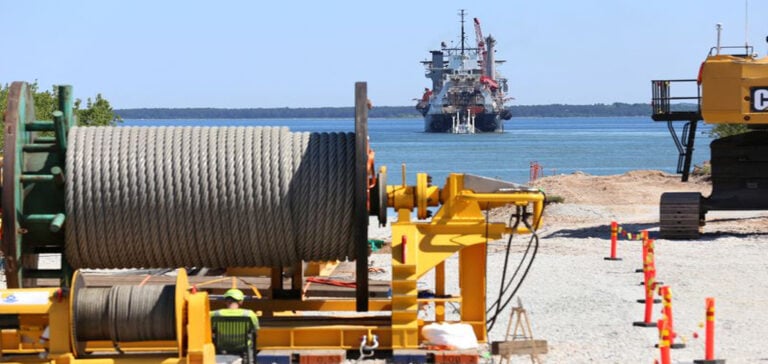The Finland-Estonia Pipeline Inquiry continues. As a reminder, this pipeline was severely damaged by an external intervention. The Finnish authorities have taken strict measures to determine the cause of the damage. They assessed the implications for the region’s energy security and identified those allegedly responsible for the action.
The Balticconnector gas pipeline, which links these two neighboring countries, is a crucial component of the regional energy infrastructure, providing essential natural gas supplies to Finland. However, on October 8, the pipeline suffered a major leak, leading to its immediate closure. Preliminary investigations quickly indicated that the leak was the result of deliberate external intervention. This revelation raised concerns about the possibility of an act of sabotage aimed at disrupting Finland’s natural gas supply and jeopardizing the energy stability of the Baltic region.
Samples Collected for Expertise
The Finnish National Bureau of Investigation (NBI) has announced the end of the initial phase of investigations. Investigators took significant samples of the damaged pipeline. These have been handed over for detailed examination. These samples required dives to depths of several dozen metres to reach the areas affected by the damage.
Maritime Traffic Review
At the same time as analyzing the pipeline, the Finnish police are investigating marine traffic in the area at the time of the leak. The incident occurred off the Finnish coast of the Baltic Sea, an area frequented by a variety of vessels. Boats in the vicinity included the Russian cargo ship Sevmorput, the Chinese cargo ship Newnew Polarbear and other vessels.
Geopolitical concerns
The circumstances surrounding the leak have prompted speculation about possible Russian involvement, due to the presence of the Russian cargo vessel Sevmorput in the area at the time of the incident. However, Finnish Prime Minister Petteri Orpo warned against any premature conclusions. He stressed that further investigations were needed to determine those responsible for this damaging act.
According to the Finnish pipeline operator, repair work on the damaged pipeline will take “at least five months”. This means that Finland will be forced to source its natural gas by other means, notably via its floating liquefied natural gas terminal at Inkoo, located in the south of the country. The economic and energy consequences of this gas supply disruption will be significant for Finland and its industries.
The Enigma of Gas Leaks in the Baltic Sea
It should be noted that this incident is not the first to affect the Baltic Sea region. Just over a year ago, on September 26, 2022, four huge gas leaks accompanied by underwater explosions occurred on the Nord Stream 1 and 2 pipelines. They carry most of Russia’s gas to Europe. However, the cause of these incidents remains an enigma.
Impact on energy consumption in Finland
Natural gas accounts for around 5% of Finland’s energy consumption. It is mainly used in industry, power generation and heating. The disruption of natural gas supplies will have an impact on these sectors.
This investigation reveals the circumstances surrounding the damage to the Finland-Estonia gas pipeline and the possible implications for the region’s energy security. Developments in this case will have an impact on natural gas supplies to Finland and could have geopolitical repercussions.





















